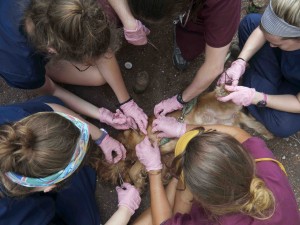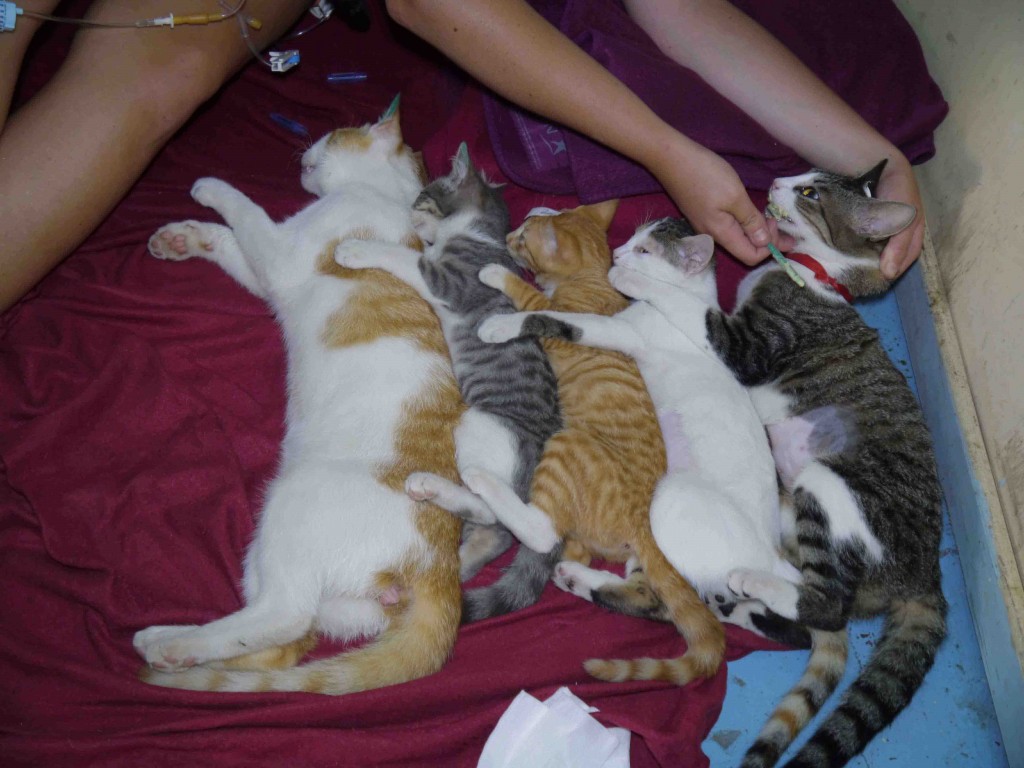Tod Emko, President, Darwin Animal Doctors
 This week, our summer veterinary campaign started tackling two major islands of Galapagos. DAD veterinary volunteers on both islands stepped up to handle a large load, and to aid seriously suffering animals.
This week, our summer veterinary campaign started tackling two major islands of Galapagos. DAD veterinary volunteers on both islands stepped up to handle a large load, and to aid seriously suffering animals.
Our DAD surgeon for San Cristobal this week is legendary surgeon Dr. Diego Barrera, the founder of “Proteccion Animal Ecuador Ambato,” or PAE Ambato (http://www.pae.ec/). PAE is the only national network of municipality animal shelters in Ecuador, making it an extremely important institution. Dr. Barrera is also an amazing surgeon, and he literally hit the ground running on this campaign. Dr. Barrera flew to Galapagos this week wearing scrubs, went directly to the clinic from the airport, and began performing surgeries upon arrival. Together with our St. George’s University veterinary students, he performed 12 sterilization surgeries in the first four hours!
Some of the cases were intense. One poor dog that came in had the worst case of tick infestation that Dr. Barrera had ever seen. The dog had not dozens, not hundreds, but literally THOUSANDS of ticks all over it. It took five DAD volunteers three hours to remove what they could and treat the dog, who was in serious shape. The dog was most likely suffering from anemia due to having so many ticks feeding off its blood, and we gave the dog treatments for tick-borne diseases.
On Santa Cruz Island, veterinary students from the University of Pennsylvania arrived at our clinic, and were joined by Australian veterinarian Dr. Seina Capp. Dr. Capp is head vet at Essendon Vet Clinic in Melbourne, with thousands of sterilization surgeries under her belt. The DAD UPenn campaign began early in the morning, just hours after the vet students arrived at our clinic. Despite having traveled for two days to get to Galapagos, the students and vet were woken even earlier than planned, to handle everything from intense car accident cases to surgery all day, beautifully and professionally. In total, they treated 14 animals that day.
We also continued our infectious disease testing on Galapagos this week, as St. George’s University veterinary students tested animals for many diseases that should not be on Galapagos. Our findings not only tell us what treatments to give our patients, but the results are also vitally important to maintaining the health of these islands.
Once again, we thank all of you for your contributions to these campaigns, because without your help, we couldn’t be in Galapagos to handle any of these cases, sterilize any of these animals in this sensitive ecosystem, alleviate any of this suffering, or do any of this research.
Thank you for helping us save the Galapagos!

